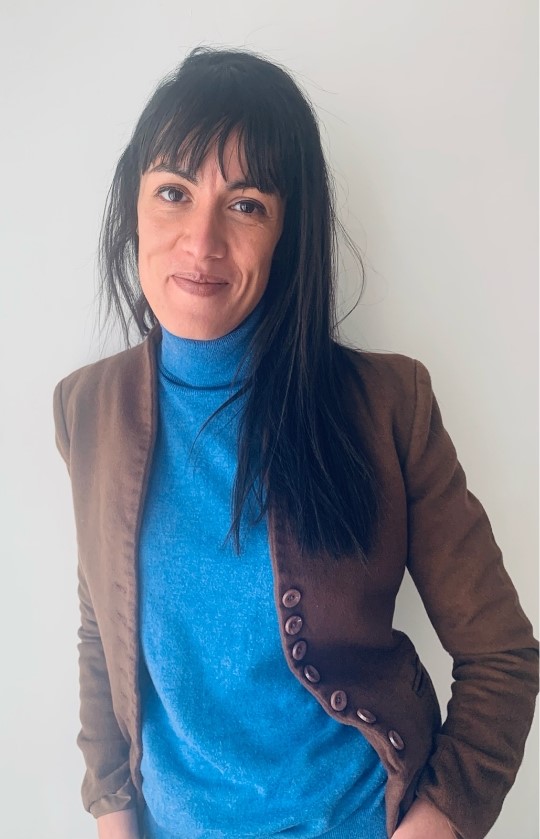
Assemblée générale et séminaire annuel 2022 du Social Good Accelerator — bilan et perspectives
Assemblée générale et séminaire annuel du Social Good Accelerator : deux jours d’échanges et de perspectives
Les 17 et 18 juin, plusieurs membres du Social Good Accelerator (SOGA) se sont réunis à l’Hermitage, dans la commune d’Autrêches (Oise), à l’occasion de l’Assemblée générale et du séminaire annuel de l’association.
Au-delà du cadre inspirant du lieu, cette rencontre a été l’occasion de renforcer la dynamique collective et de faire émerger de nouvelles idées pour l’avenir du SOGA.
Retour sur deux journées riches en discussions, décisions et perspectives partagées.

La communauté de Social Good Accelerator s'est réunie à Autrêches (Oise) pour discuter de l'avenir de l'association et délibérer en vue de l'assemblée générale annuelle.
Source: Nathanaël Ackerman
Une rencontre inspirante au cœur de l’économie sociale et numérique
Installée entre Compiègne et Soissons, l’Hermitage constitue un écosystème local innovant où maraîchers, forestiers, associations et fablabs cohabitent.
Ce lieu d’expérimentation sociale et écologique a offert un cadre idéal pour réfléchir à la transition numérique solidaire.
La reprise des événements en présentiel, après deux années de crise sanitaire, a permis à de nombreux membres de se retrouver enfin “autour du feu” — littéralement.
“Ce moment de partage a montré que notre communauté, bien que plurielle, reste profondément unie par la volonté d’un numérique d’intérêt général.”
— Équipe du Social Good Accelerator
Des ateliers constructifs pour accélérer la transition numérique de l’économie sociale
Réunis en groupes de travail collaboratifs, les participants ont échangé sur :
-
les valeurs fondatrices du SOGA,
-
les besoins de ses membres,
-
et les axes prioritaires de développement pour les années à venir.
Les discussions ont permis de croiser les expertises de l’économie sociale, du numérique, de la tech et des affaires publiques, donnant lieu à des propositions concrètes pour renforcer la coopération entre acteurs.

Situé entre Compiègne et Soissons, l’Hermitage est au coeur d’un écosystème local innovant où se côtoient des maraîchers, des forestiers, des associations et des geeks du FabLab.
Source: Thomas Brisbart, Social Good Accelerator
Bilan 2021 et perspectives 2022-2023
L’Assemblée générale du 18 juin 2022 a permis de valider à l’unanimité le rapport d’activité et le rapport financier 2021, marquant une année charnière pour l’association.
Parmi les réalisations phares de 2021 :
Le Social Tech Atlas
Projet emblématique de l’année, soutenu par la Ville de Paris et Aésio Mutuelle, le Social Tech Atlas est une carte interactive recensant les organisations européennes de l’économie sociale proposant des solutions technologiques ou accompagnant la transformation numérique du secteur.
Présenté lors du Sommet EUSES à Mannheim en mai 2021, il constitue une référence unique pour cartographier la Social Tech européenne.
La Social Tech Academy
Initialement conçue comme un cycle de webinaires, la Social Tech Academy a évolué vers une véritable plateforme de formation sur les métiers du numérique social.
Son objectif : outiller et former les acteurs de l’économie sociale aux compétences digitales nécessaires à la transition du secteur.
Des groupes de travail devenus programmes
Les groupes de travail ont été réorganisés en programmes thématiques afin de structurer l’action du SOGA selon son triptyque stratégique :
- VOICE – plaidoyer et affaires publiques,
- LEARN – formation et compétences numériques,
- CONNECT – communauté et coopération européenne.
Cette évolution témoigne d’une maturité organisationnelle et d’une vision à long terme partagée par les membres.
Les documents officiels (rapports d’activité et financier 2021) sont disponibles :
Lire le rapport d’activité en français
Read the activity report in english
Un collectif en mouvement
Ces deux journées ont confirmé le dynamisme et la cohésion de la communauté SOGA.
Entre discussions stratégiques et moments conviviaux, les participants ont réaffirmé leur engagement à faire du numérique un levier de transformation sociale.
“L’Hermitage a été plus qu’un lieu : un laboratoire vivant de ce que nous défendons — l’alliance entre innovation, solidarité et écologie.”


























